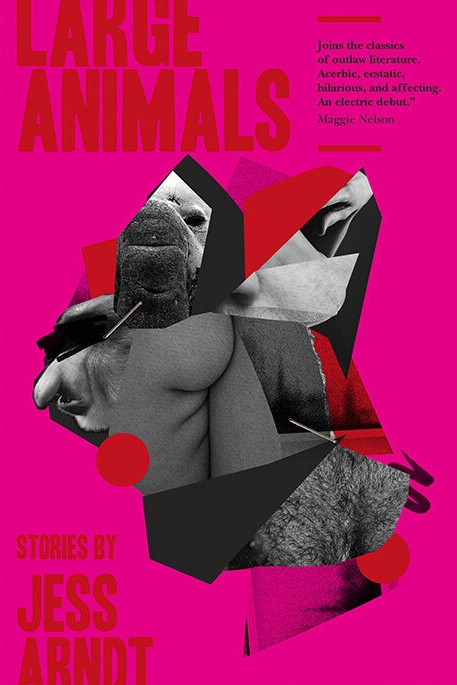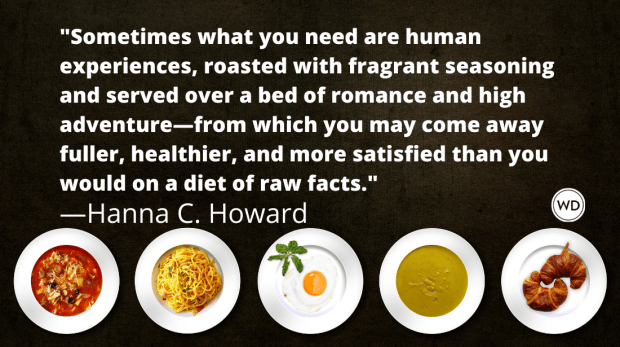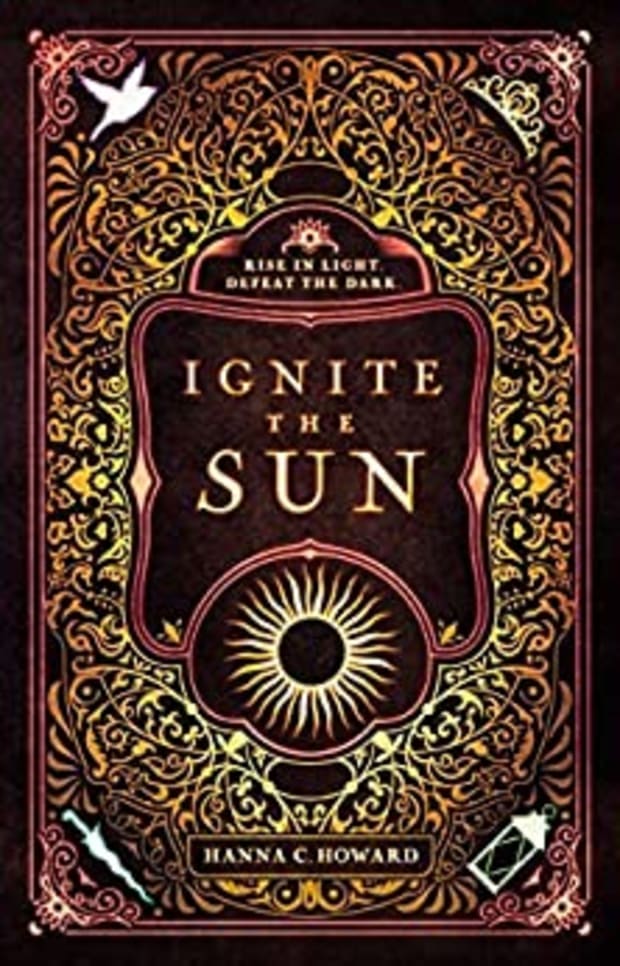“Advice for the Haunted” by Rachel Swearingen
Any other couple would have thrown away the former owner’s things and moved in, but two months after buying the apartment at auction, Nick and I were still using it as a playhouse. The former owner’s name had been Natalia. We had “inherited” all of her possessions, her pantry and freezer stuffed with food. Under the couch, she had wedged bottles of cheap red wine. Nick joked that we could survive at Natalia’s forever. “It’s like our own private fallout shelter,” he said, as we peeled back her bedspread and crawled under the sheets. We didn’t concern ourselves with the circumstances of her death. We were young and in love, and the misfortunes of others had nothing to do with us.
The flat had one bedroom, an office, and a narrow kitchen that opened into a long central room. Heavy drapes shut out the city view. The furniture was outdated; the Persian rugs, threadbare and stained. The ceilings and walls had recently been spackled, leaving bone-white spots. On the buffet, next to the dining table, were stacks of postcards of paintings, many of them torn or chewed at the corners. We found a half-used bottle of anti-anxiety pills in the medicine cabinet, a glass accordion in a folded tablecloth, a baggie of foreign coins in a boot at the back of a closet. In a rickety piano bench, we discovered faded Polaroids of two girls at what looked like a family picnic.
We were still paying rent for our own apartments and rarely talked of the future. At Natalia’s, we’d spend entire weekends pretending we were the last two people on Earth. We liked to camp it up. “Zombies?” I’d say.
“Meteorite.” He’d tear off his tie. “It’s at least three miles wide.” Sunlight would be breaking through the drapes. “Do you see how dark it’s getting?”
“What will we do?” I’d say, unbuttoning my blouse.
We ransacked her cupboards, pulled out soapstone animals from Africa. We placed the rhinoceros and giraffe in compromising positions. We played like children, pillaging her closets. Then we learned from the downstairs neighbor that Natalia had been a recluse who hadn’t left the apartment in years. Something had happened to the sister who brought her supplies, and Natalia had started venturing into the hallway. One day she left the building with a suitcase and somehow plunged to her death from the L platform just two blocks away.
We continued to rearrange her furniture and tchotchkes. We still pretended we were secret agents or a strange new semi-human species that had survived the apocalypse. Entire weekends passed before we left the apartment or ate a real dinner, but we studied her photographs more closely now. We invented roles for Natalia in our games: captor, hostage, aunt.
Once or twice a week, Nick and I met at Natalia’s during my lunch break. We were soaking in Natalia’s tub. Nick handed me a mug of wine. “Don’t look at me like that,” he said. “You know you’re not going back to work.”
We thought it was a shame Natalia had had to bathe alone in such a wondrous tub. The guy beneath us had said that the morning of her death, she said hello to him in the hallway. “But she was all strange and spacey. Really happy, you know. The kind of happy people get before they jump.”
“But the suitcase,” I said to Nick. “He said she was carrying a suitcase. Why would she, if she was planning on ending it all?”
He pulled a long leg out of the water and slung it over the edge of the tub. “She should have never left,” he said. “She had everything she needed right here.”
I stood and reached for a towel. I’d been hearing noises, and what I heard then was the sound of a wrench knocking against metal inside the bathroom walls. The door creaked open and cold air rushed in. I hopped out of the tub and shut it, but as soon as I turned around, it opened again.
Nick crossed his arms over his chest and in a rich falsetto said, “Natalia, stay out. We’re naked.”
I laughed out loud, but then came a sound like steel marbles rolling across the ceiling. I think even Nick had the feeling we weren’t alone. He handed me his mug. “Hold this,” he said, and when I reached, I slipped on the tile and struck my head.
Nick got out and examined my forehead. “It’s not that bad,” he said. “Barely a scratch, but you’re going to have a goose egg.”
“Natalia did it,” I said. I was only half-kidding.
We tightened our towels and made our way to the kitchen. I took a box of crackers and a jar of peanut butter from the cupboard. “I don’t know what it is about this place that makes me so hungry,” I said.
Nick dug into the peanut butter with a spoon. “It’s that we didn’t buy this food ourselves.”
“No, it’s like it’s not real. Like there’s no world out there.”
“Precisely,” he said. He pulled me close. “Let’s never leave.”
We joked about turning the apartment into a private country, a micronation like Christiania in Denmark. We’d call it the Republic of Natalia and design our own special stamp.
The next morning, I noticed an imprint in the bedding, as if someone had been sitting there watching us. Nick was in the kitchen paging through one of Natalia’s books, and he showed it to me. “Classical mathematics,” he said.
“No wonder she didn’t have any friends.”
“I thought you liked math.” He filled one of the miniature cups from her china set with coffee and put it down in front of the extra stool at the breakfast bar. “Good morning, Nat,” he said. “How’d you sleep?”
“She’s grumpy in the morning,” he said to me. “Doesn’t like to talk.” He winked.
“I think it’s time to tell Oscar and Joelle,” I said. “About the apartment, I mean.”
Oscar and Joelle were our closest friends. They were the reason we were together. And Oscar believed in ghosts. He was a sort of amateur ghost hunter. I wanted to get his read on the place. “Let’s have them over, for dinner or something.”
“You know how Natalia feels about company,” Nick said. “Besides, they don’t have visas yet.”
“I’m going to be late,” I said.
Nick put the book aside and got up to make another pot of coffee. “We don’t start before ten in the Republic of Natalia.”
“Too bad I don’t work for the Republic. If I keep this up, we won’t be able to afford to live in the Republic anymore.” I had intended the words more lightly.
“I never asked you to put up the down payment,” he said. “It didn’t need to be that large.”
So far we had managed to mostly avoid talking about the purchase or my paying more toward the mortgage. I was in the middle of several large acquisitions at work, and any conversation about interest rates and balloon payments was likely to turn into an argument about corporate greed in the face of famine and war.
I left Nick in the kitchen and went to Natalia’s closet to look for something to wear. We almost never stayed overnight during the week. I was traveling more for due diligence, always to other cities in the Midwest or the South. I was constantly shuttling between airports and hotels, between my own apartment, Natalia’s, and my office downtown. I felt disoriented, and my excuses for leaving work were growing absurd.
Most of Natalia’s clothes were outdated. I recognized a purple dress from a photograph of a much younger Natalia in front of a fountain with a boyfriend somewhere in Europe. We had propped the photo against a lamp on her dresser, and I looked at it again as I changed into the dress. The boyfriend had a goofy grin and thick hair that stuck up in a cowlick, and Natalia threw her head back to laugh. She must have been healthy then.
I searched her underwear drawer with dread, wishing I had brought an overnight bag. All of Natalia’s undergarments were plain white cotton, many with frayed elastic. I reminded myself that Natalia was dead and wouldn’t care if I wore something of hers, but I rejoiced when I found a lacy pair of silk panties that still had a price tag. I wondered when she had bought them, and why just one pair. I put them on and for a moment I was Natalia, untouched for too long.
At Fullerton, I waited on the platform for the Red Line. I checked my email on my phone, only partially aware of a pack of unruly school kids horsing around. One of them slammed into me. I stumbled toward the tracks, and an enormous woman grabbed me and pulled me back. I thought little of this until I was standing in the compartment and the woman pointed at my phone and said, “That thing’s gonna be the death of you.”
I squirmed against the sensation of the silk against my skin. “I’m wearing the underwear of a dead lady,” I wanted to confess.
I arrived at work late for yet another meeting and made up an excuse about a mechanical problem delaying my train. It was a harmless lie, but I had told so many by then I had the uneasy feeling I would be fired.
After work that evening I went out to meet my running club. They were a rugged group that ran even when temperatures dipped below zero. I wanted to be like them. At the waterfront, I tried to keep up. Lake Michigan frothed, and gulls struggled against the wind. The man in front of me lagged too. He kept wiping his arm across his brow. He tripped and regained his balance, and then his legs buckled under him.
At first I thought he had simply slipped, but he wasn’t moving and several other runners gathered around him. “I don’t think he’s breathing,” a woman said. I stood looking on with the crowd, and then sirens sounded and before long a paramedic was pushing us back, saying, “Give us some room, folks.” The others turned back, but I jogged another mile or two. I didn’t know the man, and that’s what I told myself all along the lake. He’s just a stranger. You don’t know him. This sort of thing happens every day.
I didn’t want to be alone, so I called Nick and went to Natalia’s. I pulled off my wet clothes and filled the bath. The refraction of my hands underwater made them appear broken off and reattached at the wrong angle. I ran my fingers over the welt on my forehead. I had fallen or almost fallen twice in less than 24 hours, and then, directly in front of me, a man had collapsed and probably died.
I got into bed, but not before putting the soapstone animals away in Natalia’s dresser, not before turning on the bedside light and making sure my phone was within reach. I couldn’t stop seeing the man at the lake, his legs giving way. I turned my face to the pillow and tried not to think of Natalia drooling into the same feathers.
Then Nick was standing in the bedroom doorway. He held his arms out and made his eyes dull, and I said, “Yes, please. Bring on the zombies.”
He vaulted into bed and got under the covers, and I jolted at his cold hands. “You’re so warm,” he said. “God, you feel good,” and then he was kissing me, we were turning together, the covers off now, tangled around our legs. I was kneeling in the middle of the bed, the two of us reflected in the mirror above the dresser. The drawer seemed to open a little more. Nick’s arm tightened around my waist. He kissed the back of my neck.
The apartment walls were mere skin. The patched spot on the ceiling seemed to pulse. I closed my eyes to make it stop. Nick’s breath was in my ear, and when I opened my eyes Natalia was there, hovering at the end of the bed. She was a blur, then her ashen face appeared, her mouth opened as if to scream, only it was me screaming, throwing Nick off me, and wrenching the covers to my chin.
“Who’s there?” Nick said. He stared in the direction of the dresser for several minutes and then crept back into bed. We huddled together and slept.
We said nothing about what had happened until the next morning when Nick teased me about my pushing him off the bed.
“But you saw her. I know you did.”
“I didn’t see anything. I thought someone broke in. You’re the one who screamed.”
“Then why didn’t you check the apartment? Why didn’t you check the door?”
He didn’t answer, just waved me away and went into the bedroom with his laptop to work.
He had canceled our meeting with a general contractor about the apartment remodel, claiming he had a deadline. He worked for an international relief organization and spent much of his time drafting reports and making overseas calls. Earlier in the year, two of his colleagues had been killed in a bombing, another taken captive. He had stopped reading the news, and when he mentioned work at all now it was to complain it was meaningless. I couldn’t be certain, but I thought there were new cans of soup in the cupboard, that he was secretly adding to Natalia’s stash and replenishing the store of wine under the couch. I found him staring into the mirror in the hallway talking to himself and thought I caught Natalia’s name. I worried she had worked her way into him, that if we didn’t do something soon, he’d be afraid to leave the apartment too.
What we needed was the company of friends, so I called Oscar and Joelle, and we met them at a nearby restaurant. It was almost like old times, the two of them telling such good stories. They were animated, flushed with life. They had a seven-year-old named Lucy and lived west of the city, and we hadn’t seen them in months.
“We bought a condo,” I blurted. “In Lincoln Park. Can you believe it?”
Nick pinched me under the table.
“It’s about time,” Joelle said. I noticed she wasn’t drinking and suspected she was pregnant again. They had been trying for several years to have a second child, going through fertility treatments, suffering one loss after another.
“It’s not official yet,” Nick said, glancing at me. “Even if we do get it, it could be months before the whole thing’s finalized.”
“You couldn’t pay me to live in Lincoln Park,” Oscar said.
“It’s small. Two bedrooms, one is barely big enough for an office,” I said, trying to downplay how expensive it was.
“It’s not that small,” Nick said. “Whole families live with less.”
“The woman who lived there killed herself,” I said, and Nick buried his face in his hands. “It went into probate. All her stuff is still inside.”
“How’d she do it?” Oscar asked.
Nick looked up at Oscar. “Don’t even go there. It didn’t happen in the apartment. And she didn’t kill herself. She fell in front of a train. She tripped or something.”
Oscar tore off another piece of bread and seemed to ponder it before wedging it into his mouth. “If you buy it, I’m bringing my equipment.”
“I’m telling you, it’s not haunted.”
“Does this mean there might be a wedding?” Joelle asked.
“Not if Natalia has her way,” I said.
“Natalia?” Oscar said. “You mean you knew this person?”
“No,” Nick said. “Like I said, we’re just thinking about buying it.”
Nick barely spoke the rest of the evening and was silent as we walked back to the apartment. When we got inside he said, “Are you happy now?” He gestured all around. “Now Natalia’s is going to be just like everywhere else.”
“It is like everywhere else, Nick. It’s just an apartment. You didn’t have to lie to them.”
“I can’t believe I didn’t see it.”
“See what?” I asked. “Do you know how much money we’ve been wasting?”
“Yes,” he said. “It’s always about money, isn’t it?”
The next morning I flew to Des Moines for work. When I tried calling Nick, he wouldn’t answer. I returned to the apartment several days later, and the place was littered with plates of half-eaten pasta, crumpled paperwork, Natalia’s CDs and albums. The carved animals marched in a parade down the hallway. The air smelled musty. All the drapes were pulled shut.
I opened the bedroom door and found Nick in bed, buried under a pile of blankets, a pillow over his head to block the light, the curtains blowing in cold air from the open window. I could just make out his whiskery chin. The armchair from the corner of the room was next to the bed, as if someone had been watching over him. The hair on my arms stood on end.
I pulled the pillow away and Nick blinked at me. “Hey,” he said.
“Hey,” I said, crawling under the covers. “Are you OK?”
“I can’t sleep,” he said. “The lights keep going on and off.”
“They’re probably doing electrical work somewhere in the building.”
“Maybe,” he said. “But what if Oscar was right? What if she’s here?”
We called Oscar and by evening the apartment was rigged with cords and computers, with sensors and blinking red lights.
Oscar had taken photos of Nick that showed a pinkish-red orb above his head. “See that?” he said. “Ectoplasm. You’re definitely haunted, Nicky. But not as much as this place.”
He found nothing in his photos of me. “Sorry, friend,” he said, patting my arm. “Don’t take it personally. The women have always had a thing for Nick.”
Nick and I slept at my apartment that night, and when we returned the next morning Oscar led us from room to room, indicating places of high activity. He was giddy with excitement. He showed us charts of energy fluctuations on his computer. “This is from the bedroom,” he said, pointing to a jagged line of temperature shifts he found disturbingly erratic.
I wondered about cell towers, but said nothing. Then Oscar played a series of recordings of thumping and rattling and what sounded like someone opening and closing cupboards.
“We’ve heard that before,” Nick said. “It’s an old building.”
“Then what do you make of this?” Oscar played a recording of a hollow, raspy voice saying what sounded like “Are you there?” and a second one that said, “Hurry. Hurry.” Or maybe “Hurray. Hurray.”
“Tell me you engineered that,” Nick said.
I expected Oscar to laugh, but instead he looked at us gravely and said, “You started this, dudes. The lady’s confused. You’ve got to get rid of her stuff. Every last thing. Throw her a going-away party or something. You’ve got to tell her it’s time to leave.”
It snowed the Friday of Natalia’s party, the first major storm of the season. We had cleaned the apartment and made a spread of her food and drink. Nick was more energized than I had seen him in months. He talked about refinishing the floors. He talked about a lead on a new job with a better NGO. We poured bottles of Natalia’s booze into an enormous punch bowl we found in her storage space in the basement, still in its original box. “If we’re going to do this, let’s really do it,” Nick said. He filled each room with light from Natalia’s emergency candles, and he made an altar of photos and figurines on the breakfast bar. He even went out and bought flowers for her, white chrysanthemums and roses.
“That’s what I love about this guy,” Oscar said. “He wants to make even the ghosts feel special.”
He and Joelle had left Lucy with Oscar’s mother and were staying overnight. Friends we hadn’t seen in ages arrived, and we stood around drinking, catching up, looking at Natalia’s photos. Oscar told ghost stories as he led them on a tour of the apartment.
In the kitchen, Joelle caught me staring at her drink.
“Two solid embryos. I really thought it was going to happen this cycle,” she said. “Oscar wants to see a different doctor, but I think I’m done.”
I tried to hug her, but she pulled away.
“This party must seem a little ridiculous right now,” I said.
“Yes,” she said. “But we could use a little ridiculousness.”
Most of our guests were like Oscar and Joelle, exhausted parents unused to staying out late. We stood around sipping from plastic cups. Then more people arrived, and the mood grew lively. We celebrated until midnight, when Oscar positioned himself behind the makeshift altar. He waved Natalia’s rhinoceros in the air and whistled loudly. Then Nick yelled, “Listen up, everyone. Let’s at least give this a shot.” Someone handed Nick a shot of whiskey, and he knocked it back and said, “Seriously, guys. Gather round.”
Oscar asked Nick and me to remove the hallway mirror, and then he encouraged everyone to hold something of Natalia’s. Someone placed a hand on the coffee table. Someone else, on the small oil painting Natalia must have gotten from a street vendor in Paris before she became ill. Joelle wrapped her hand around a floor lamp. A friend of Oscar’s grabbed the photo of Natalia before the fountain.
“I ask you,” Oscar said. His voice caught as he glanced at Joelle. “To silently help our friend Natalia let go of this world.”
One of Nick and Oscar’s old college pals said, “Oscar, you should have been a priest,” and there was laughter, and then the room quieted again.
“It’s time, Natalia. We’re going to close the gateway now.”
We held the mirror up facing the room. Oscar moved a candle closer and someone said, “Look,” and everyone gasped, and I knew they had glimpsed her reflection.
Oscar held up his hand. “Be calm, everyone. Don’t frighten her,” and just then the floor lamp turned on and Joelle screamed and jumped back, and one of Oscar’s friends yelled, “This is so staged.”
“Natalia,” Oscar said. “Stay with us. We’re here to help you.” He nodded at Nick and me to follow him to the sink. We carried the mirror like a coffin and rested it over the basin. Everyone crowded into the kitchen, and no one said a word. Nick filled his cupped hands with water and let it run over the surface.
“Tell her you’re letting her go,” Oscar said. “Tell her to cross over.”
Nick looked up at everyone. “Wow,” he said. “I can’t believe I’m doing this.” His voice came out soft at first and then louder as he said, “Natalia, can you hear me? There are a lot of people here for you.”
Oscar nodded at him to continue. “Come on, Nicky. Tell her.”
Nick said a few more words. He seemed flustered, and then resigned as he said, “I want you to look for the light and go into it. Don’t be frightened.” He stepped aside, and Oscar wrapped the mirror in a towel and set it next to the door to be gotten rid of with everything else.
“That’s it,” Oscar said. “Portal’s closed. She’s gone. I think.”
Then he burned sage, and people coughed, and some went out to the balcony, and others to the bedroom to find their coats and leave.
Nick and I pressed pots and pans into people’s arms. “Everything that’s left is getting donated or thrown out. You want something, take it,” we said.
We propped open the front door, said goodnight to those who were leaving, coerced them into taking extra dishes and trinkets. Furniture was hoisted and bumped down the stairs. The rugs, the postcards, the menagerie of animals, it was as if Natalia herself was being scattered throughout the city.
The downstairs neighbor came up to ask us to turn down the music, and we tried to give him a stack of old CDs. “No way,” Oscar said, snatching them back. “Too close to home.” The last of our guests left. A few lingered to talk in the stairwell. Then the apartment grew still. We had made up the bed for Oscar and Joelle, and Joelle stumbled to the bedroom to sleep. Oscar sat down on the floor, his equipment all around him. He had his digital recorder running again, attempting to pick up any lingering voices from the beyond. Nick and I bundled up and went to the roof to look out at the city. “It will be better now,” I said, and he said, “It’s weird, isn’t it? To think of this as ours?”
When I woke that morning on the pullout couch, Oscar, Joelle, and Nick were already awake and in the kitchen eating doughnuts from the bakery down the street. Joelle handed me a cup of coffee in a paper cup. Oscar stood at the counter, playing part of a recording from the night before. “That,” he said. “You didn’t hear that? Listen again.”
“I hear static, Oscar,” Nick said, biting into a doughnut. “Just static.”
Outside, rain turned to sideways sleet. We had scheduled a Salvation Army pickup for the next morning and had much to do. We threw the trash from the party down the garbage shoot. We set to work on the kitchen, emptying and cleaning the shelves and pantry, boxing the extra food. In the bedroom, we dismantled the bed and finished bagging the clothes.
“The mirror,” I said, pointing to the one over the dresser. “We forgot this one.”
Oscar looked alarmed. “Not to worry,” he said. “We’ll put it outside.”
We lifted the dresser out the door and down the stairs to the curb. The sky had cleared. People hurried past on their way to the L and were momentarily reflected in the mirror. We said goodbye to Oscar and Joelle as we made our way back. I was sorry to see them go, even sorrier once we were back in the near-empty apartment. Without the rugs in the living room and hallway, every footstep on the wood floor echoed. The windows rattled. If anyone had looked up into our apartment just then, they would have seen us standing in a vacant room, lovers perhaps, on the verge of moving in or out. We were suddenly tired, and we went to the bedroom. We had yet to remove the curtains there, and Nick closed them. We spread blankets on the floor, kicked off our shoes and lay down. I tucked my head into Nick’s shoulder, and we listened to the wind, to a helicopter whirring above the building on its way to the hospital.
“It’s almost like she was never here,” Nick said.
“Yes,” I said, but it wasn’t true.
We talked about the bright new things we would buy, the renovations we’d make. “I can’t wait to tear out those soffits,” I said. Nick shut his eyes, but I could tell he wasn’t sleeping. I stared at the spackled spot on the ceiling, at the dull walls, and tried to imagine the room in a shade of yellow or blue. Tomorrow we’d go grocery shopping. We would only stock as much as we needed to get through a week or two, never more. We wouldn’t hoard like Natalia had. We would throw parties and go out with our friends and never prepare for unknowable disasters. It would become an incantation, a theme song for the coming years. To never be like Natalia. To take the train downtown each morning. To never be afraid.
The post For Sale: Spacious 2BDR, Great Views, Ornery Ghost appeared first on Electric Literature.




